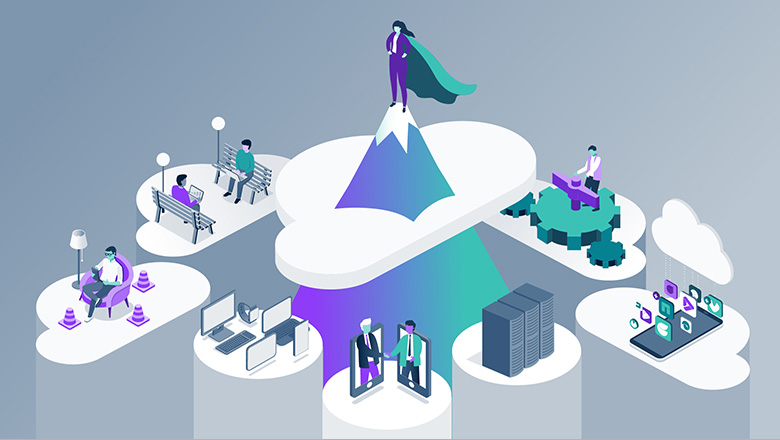What is the API Economy?
An application programming interface economy, or API economy, refers to the business structure where APIs are the distribution channel for products and services.
With ever-increasing user demand for apps, companies are exploiting the new API economy by not only developing APIs internally, but also exposing APIs to thousands of third-party developers through API portal technology. APIs are enabling companies to reach new customers, target new sources of revenue and connect cloud applications to back-end services.
But even with growing user demand, turning APIs into profits is no simple feat. API monetization requires an API management solution that not only handles the development and implementation of APIs but streamlines authorization, billing and payment for API usage.
Why are businesses joining the API economy?
APIs are a collection of protocols and subroutines that enable applications to talk to each other and exchange information. Developers can use APIs to make their application call on other products and systems without requiring the developer to know how those products and systems are implemented. As a result, APIs make it easy for businesses to create new user experiences, leverage third-party solutions and create innovative products.
With APIs, companies can turn products into platforms, which act as force multipliers for value creation. Business ecosystems can exchange goods and information, creating network effects that lead to greater value. The API economy builds on the inherent capabilities of APIs with a business plan to generate new sources of revenue. It’s a way to leverage your unique business logic and data for new uses – delivering value to the API consumers and enhancing your competitive advantage.
In an era when speed is essential, the API economy can help you accelerate time-to-market. Businesses using APIs that leverage existing services help you deliver products faster. By tapping into third-party solutions, you can focus on building truly innovative capabilities that meet your customers’ needs.
What are examples of the API economy?
How Software AG supports the API economy
For companies that want to jump on the API economy, Software AG provides a leading solution with the webMethods API Management Platform.
webMethods API Management allows you to reap the benefits of the API economy by managing the entire process of planning, designing, developing and securely exposing your APIs to external developers, partner and consumers. This Software AG solution provides an end-to-end tool chain, enabling you to leverage your current SOA investments for new API initiatives to get more value from your current assets while saving time and reducing the costs of development and training.
This powerful suite of solutions for the API economy enables you to:
- Integrate and compose APIs
- Manage the API life cycle, SOA governance and the SOA life cycle with CentraSite
- Monitor APIs holistically with webMethods Insight
- Connect with developers and B2B partners using webMethods API-Portal
- Protect and virtualize your APIs with webMethods Mediator and Enterprise Gateway
Comprehensive capabilities for the API economy
webMethods API Management provides a rich set of features and tools that let you participate more easily and profitably in the API economy. With webMethods, you can:
- Ensure standards and best practices are met as APIs move through their life cycle
- Enable developers to easily find, read about, discuss and test your APIs
- Accelerate adoption by cataloging your APIs for discovery, re-use and life-cycle management
- Browse and search for APIs using built-in or custom taxonomies or powerful keyword search capabilities
- Receive change notifications when any event impacts your APIs
- Secure and mediate your APIs, monitoring API traffic to collect metrics for monetization
- Gain real-time visibility into service transaction to easily find root-cause location of SLA violations
In addition to providing solutions for the API economy, Software AG also offers solutions for B2B integration, SOA services and more.


